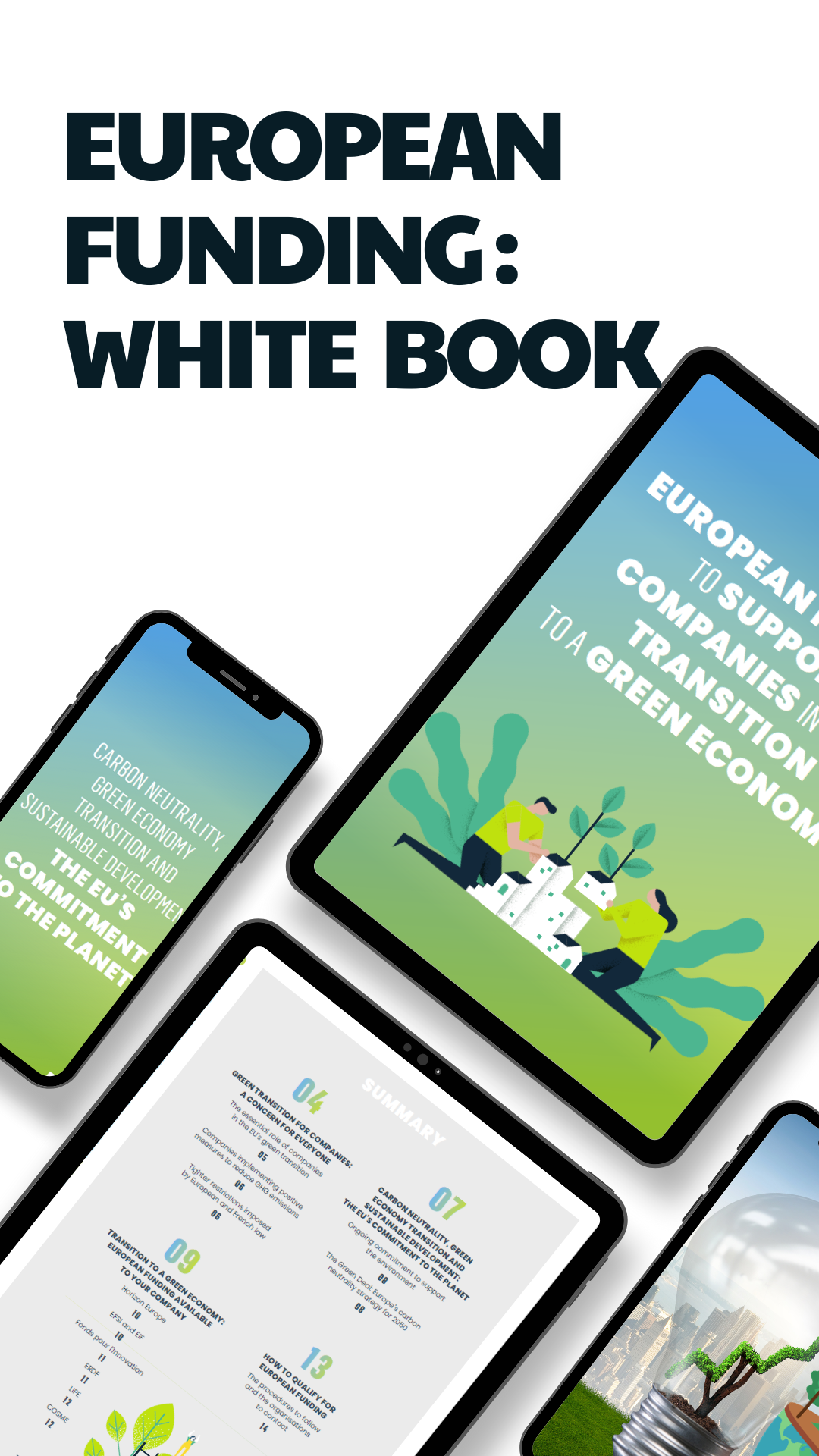According to the 2024 draft Finance Law, a budget of €62 billion will be allocated to the French Ministries for the Ecological Transition and Energy Transition, an increase of 15% on the previous year. In addition, the Government announced the commitment of a further €10 billion to accelerate the green energy transition, 7 of which are led by these two Ministries with the other 3 assigned mainly to the French Ministry of Agriculture and Food Sovereignty (agriculture and forest) and France 2030 (creation of green industries and the decarbonisation of existing industry).
Five major sectors targeted
The Ministry for the Ecological Transition & Regional Cohesion and the Ministry for Energy Transition would like to distribute this additional 7 billion across 5 major sectors: energy production, mobility, housing, water and biodiversity conservation, and regional funding.
+ €1.8 billion for energy production
A support mechanism for hydrogen production is to be launched (€0.8 bn) and support for biogas injection will be continued. France’s Heat Fund (Fonds Chaleur) will receive an additional 60% in 2024, reaching €0.8 bn. Also, as part of the nuclear revival, there will be €1.5 bn in credits.
+€1.6 billion for mobility
The 2024 draft law provides an extra €0.8 bn in resources dedicated to shared transport infrastructure (+20%) as per the Future Plan for transport, launched in February 2023. In the same way, €0.7 bn is earmarked for the financing of 13 metropolitan regional express rail networks (RER) during the five-year term. In addition, funding for “greening vehicles” is to increase by 15% to encourage motorists to switch to electric vehicles, with a €100 per month leasing arrangement for low- or medium-income households, and increasing investment in charging points.
+ €1.6 billion for housing
An extra 50% budget increase allocated to the energy renovation of homes is also planned, so providing €5 bn in total. The zero-rated eco-loan will be extended to 2027. Support for building intermediate rental housing targeted at the middle classes will also be increased, particularly for regions undergoing economic and social change. In parallel, social landlords who undertake a comprehensive renovation of their poorly insulated properties can benefit from France’s “second life” initiative which provides for extended property tax exemptions. Additionally, the unique new national ‘MaPrimAdapt’ grant is to be offered by the French National Housing Agency (ANAH) to enable low-income households to adapt their home in case of loss of independence or disability.
+ €1.2 billion to conserve water and biodiversity
As part of France’s Water Plan announced at the end of March, resources for water companies are to be bolstered by €500M (+20%) The new National Biodiversity Strategy will receive an additional €400M, doubling the means available to reduce pressures on biodiversity, restore this wherever possible and mobilise everyone involved. This is further enhanced by an extra €0.3M in Brownfield Fund loans, perpetuated by the Green Fund.
+ €0.8 billion to support the regions
The Green Fund is perpetuated and augmented by €50M to secure the schools renovation plan. The General Operating Grant (DGF – dotation globale de fonctionnement) will see a €220M increase in 2024 and the traditional grants to support local investment (€2.1 bn) are to be continued. In addition, a nationwide rollout of the cités éducatives (Education Powerhouses) initiative is on schedule for 2027.
Initial assessment of France 2030
Twenty months after launch, the France 2030 investment plan has undergone its first assessment*. Launched in October 2021 to underpin potential growth and decarbonise business, this gives pride of place to the ecological transition with fixed targets for small nuclear reactors, hydrogen, renewable energies, decarbonisation of industries, electric vehicles and mobility, low carbon flight, agriculture, food, and forest, as well as raw materials. Other objectives from the different plan categories concern the transition, such as the large marine funds, electronics / robotics, digital technologies and – more generally – the growth in start-ups together with training and skills. As at 30 April 2023 a total of €21.5 bn has been awarded, encompassing no fewer than 118 calls for projects or expressions of interest, 95 by mutual agreement and 4 equity transactions. 1,900 projects have been selected, led by over 2,200 players, primarily SMEs. The median total investment per project is €1M. This could be enhanced “in particular for ‘emerging’ players (founded for less than 12 years) or those undertaking a radical strategic redirection to spark disruptive innovation and a renewal of the production base”.
*See “France 2030 : lancement maîtrisé d’un plan d’investissements à impacts majeurs”, available at https://www.gouvernement.fr/le-comite-de-surveillance-des-investissements-d-avenir-preside-par-patricia-barbizet-a-rendu-au
Learn more : Urban greening : a flourishing sector




